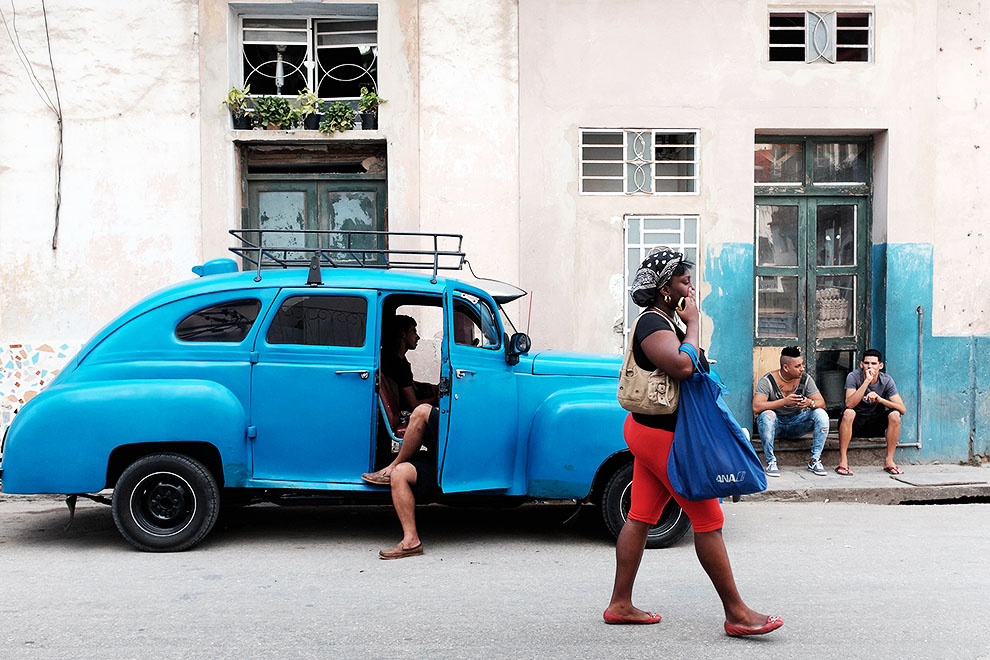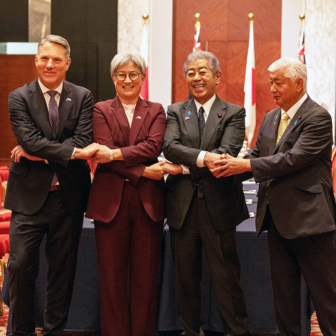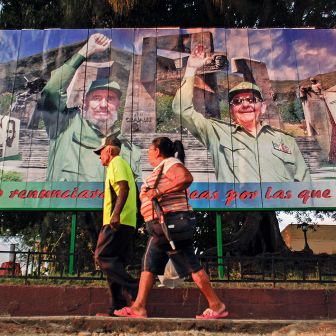Luisa and Leo* were initially great beneficiaries of the Castro revolution. They received free university education as engineers: Leo in aeronautics in East Germany; Luisa as a telecommunications engineer in Moscow and then as a computer scientist in Canada. Back home, though, Luisa and Leo each earned about US$20 per month for most of their careers.
Those salaries largely sufficed until the early 1990s, with the population living off Cuba’s ample agricultural products and other commodities heavily subsidised by the Soviet Union.
Now, in retirement, the couple’s pensions each amount to only US$10 per month – and the cost of living is far higher. They were understandably sounding rather bitter when I met them in Havana recently. “Don’t be fooled by all the glamour of La Habana Vieja, the art deco buildings and the vintage cars,” said Luisa. “This is a country in great poverty.” We conversed in Spanish for two hours, and they revealed part of their remarkable stories.
Leo was sent to China in the late 1960s in a group of about a hundred Cuban engineers and technicians. They were there to learn how to fly and maintain Russian MIG fighters, after the hostile incursions by the United States into Cuban airspace. But once Leo and his colleagues became proficient, they were given the job of training Vietnamese pilots for the “American war.”
Their big misfortune was to be based in China during the Cultural Revolution. Mao’s mismanagement caused hundreds of thousands of Chinese to die of malnutrition. The Cubans were fed – but very little. “Leo was like a skeleton when he returned home,” Luisa said. Leo nodded.
Luisa was more fortunate. In the late 1980s, having worked on upgrading the Cuban telecommunications network, she was given the task of building Cuba’s first governmental computer network, a precursor of its internet.
“That must have been a huge challenge, building it with second-hand equipment,” I said sympathetically.
“What second-hand equipment?” she asked.
“Why, because of the US blockade.”
She laughed. “When our ministry had money, the blockade was never a problem.” And then she told an extraordinary anecdote.
She managed to acquire some new DEC computers, and read their manuals carefully, but still couldn’t understand how to make them work together in the way she needed. So she had the bright idea of ringing DEC’s technical support team in Massachusetts.
Remarkably, she found herself switched straight through to DEC’s chief technology officer. She explained the problem carefully – her three years in Canada had polished her English. “Why didn’t you call our local support team first?” he responded. “Where are you based?”
Luisa gulped, and said hesitantly, “Havana.” There was a pregnant silence, and then the American replied, “Ah, the Bahamas. Now I understand.” And he proceeded to talk her through the solution. Professional pride and duty to a customer had overcome the political boundaries – and the pesky blockade.
Like most Cubans in their retirement, unable to live off their meagre pensions in a period of considerable inflation, Luisa and Leo looked for other sources for income. Leo hasn’t been able to turn his aeronautical knowledge to commercial advantage, but Luisa has recently managed to get a part-time job working on IT administration for a Spanish hotel chain in Cuba. Yet she remains deeply hurt that they have been so poorly treated in their retirement, considering the decades she and Leo had devoted to supporting their government with their considerable talents.
This pattern of Cubans retiring into poverty was reinforced as we travelled around the island. Our very knowledgeable guide in the east of the island was a former secondary school principal. The entrepreneurial owner of the homestay we stayed at in Viñales, a small agricultural town in the west, had been a primary school teacher. An elderly man who attempted to sell fruit and vegetables out of a temporary stand nearby was trying to augment his pitiful pension of some US$7 per month as a retired farm labourer.
But we struck a more startling example. Juan, who drove us around eastern Havana in his 1950s Cadillac, still works as an endocrinologist and senior hospital administrator. He said he sometimes earns more in a single day as a chauffeur to tourists than his entire monthly salary of, yes, US$20. His wife is also working as a medico, but their combined medical income is insufficient to support them and their five children.
Cubans don’t suffer the extreme hardships that face ordinary people in most neighbouring countries. Government-run community centres operate in all towns and cities, providing regular meals for the poorest Cubans. Their medical and educational services, including their universities, are free. But with the need for this would-be socialist paradise to earn its income in world markets, especially from tourism, government wages and pensions have been dropping well below the poverty line.
Our private guide in Havana, Alfredo, a university graduate with a great knowledge of Cuban architecture as well as the country’s economic history, declared that he and his parents were among the lucky ones.
His parents had been of eligible age (and ability) to take advantage of the free university education opened up by the Castro regime in the 1960s. They both graduated as architects, married after graduation, and had successful careers as government architects, working on small and large projects. Consequently, the family enjoyed a good standard of living.
Alfredo’s parents are still working, and are not yet facing the realities of living off their pensions. But he says that his own high income from the tourism industry will help them once they are retired.
Alfredo’s wife’s parents haven’t been so lucky. Two or three years too old to enter university under the new regime, they spent their careers in poorer-paid, lower-status clerical positions, despite their good marks as secondary students.
“In the first twenty years of the revolution, there were probably 85 per cent winners and 15 per cent losers – those whose family businesses or land were confiscated,” said Alfredo. “In the past twenty years, there have probably been 15 per cent winners and 85 per cent losers. I’m one of the lucky ones.”
After completing a five-year university degree in English literature and the humanities, Alfredo was given further free education as a tour guide. He also received a rare bonus: permission to spend three months in England for an immersion experience to bring his English up to greater fluency. After marrying and having two children, he gained approval – and had saved enough money – to spend a month in Spain, holidaying with his family, four years ago.
Yet Alfredo is not an uncritical supporter of the regime. In particular, he spoke of the downside of Fidel’s long-term policy of “proletarian internationalism.” During the thirty years when the Soviet Union heavily subsidised its Cuban satellite, Fidel transferred roughly half of the funds and petrol he received to various African, Asian and Latin American countries. This assistance was provided in-kind, in the form of Cuban soldiers, doctors and nurses, for extended periods. This strategy gained Cuba much influence and support in international arenas such as the UN General Assembly. But it came at the expense of a deterioration in Cuba’s own infrastructure.
The Castro brothers’ strategy had to change radically after the collapse of the Soviet Union in 1991. An estimated 37,000 Cuban nationals are still working abroad, in seventy-seven countries. Now, though, instead of providing subsidised health services to other countries, Cuba uses its doctors and nurses to earn essential national income – an estimated US$8 billion in 2015 alone, according to Forbes magazine.
The downside of this foreign policy has been inadequate funding for Cuba’s own hospitals and other important national infrastructure, especially roads and public transport. Hitch-hiking – on a user-pays basis – has become a highly visible substitute for regular intercity bus services among poorer Cubans. “In England, I learned they say ‘charity begins at home,’” said Alfredo. “In Cuba, charity begins abroad.”
Despite Luisa and Leo’s misgivings, Cuba’s heritage – its architecture, art and music – is genuine and brilliant, and its cultural tourism is deservedly growing, with more than three million arrivals last year. Relaxation of the rules allowing younger Cubans to emigrate brings in significant additional revenue in the form of remittances, of which the government takes 20 per cent. And Cuba’s agricultural exports have recently been augmented by the licensing of Cuban scientific discoveries in new pharmaceuticals, including a new lung cancer vaccine known as CimaVax.
But can the Castro brothers’ regime bring the majority of their twelve million people with them, particularly the 73 per cent on the public payroll, as they ever so slowly and carefully liberalise their economy? Or will the contrast between the winners and the losers in five years’ time start to trend towards the much starker economic inequities experienced in Cuba’s neighbouring countries, including the United States? •
* All names have been changed.




